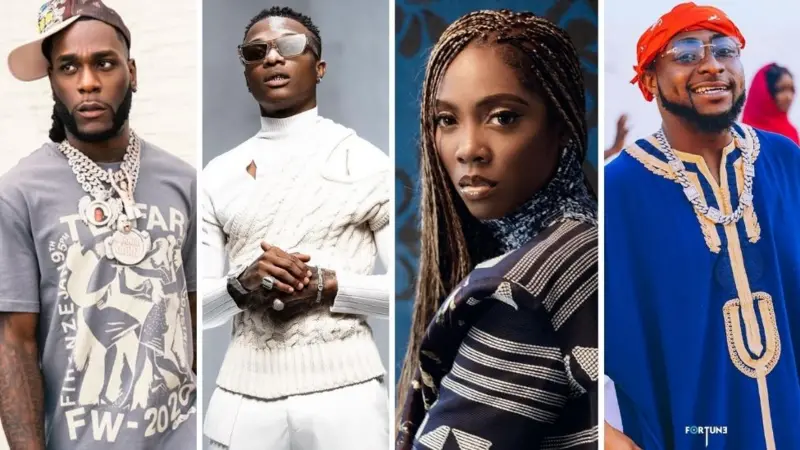Quick Summary: African artists may be topping global charts, but their streaming earnings tell a different story. From Nigeria to the global stage, unequal payouts on platforms like Spotify are raising urgent questions about fairness, exposure, and the future of music in Africa.
Streaming Is the New Normal
In today’s digital music world, streaming is the main way people listen to music. It’s also how artists share their work with fans. Platforms like Spotify, Apple Music, Boomplay, and Audiomack make it easy to reach global audiences.
The common belief is that any artist, anywhere, can now earn a decent income from streaming. But for many African artists, that dream is far from reality.
A Harsh Pay Gap
Tems’ manager, Muyiwa Awoniyi, recently shed light on this issue. He revealed that one million streams on Spotify in Nigeria earns an artist about $300. In contrast, the same number of streams in Sweden can bring in up to $10,000.
This large pay gap shows a major flaw in the global streaming economy. Artists in lower-income regions get paid far less than those in richer countries, even for the same number of plays.
Burna Boy Speaks Out
This concern isn’t new to Nigerian artists. In April 2025, Afrobeats star Burna Boy spoke out on Instagram. He said being number one on any Nigerian streaming platform is “not worth celebrating.”
He explained that 1 million streams from Nigeria pays only $300 to $400, while the same amount from the U.S. or U.K. can pay $3,000 to $4,000. Burna Boy called for more awareness about what streaming success really means for African artists.
Why the Pay Is So Low
There are several reasons behind this income gap:
- Regional advertising rates: Advertisers in wealthier countries pay more to reach users.
- Subscription costs: In Nigeria, Spotify Premium costs about $0.52/month, while in the U.S., it’s around $11 to $14/month.
- Free vs paid users: Many users in Africa use free versions of streaming apps, which generate less revenue.
Because of these factors, artists in countries like Nigeria get much lower payouts per stream than their peers abroad.
A Tough Choice for Musicians
This situation forces African musicians to make a tough choice:
- Try to break into international markets where streams pay more.
- Or focus on alternative ways to earn income locally.
For most, the second option is a necessity.
It also raises a bigger question: Should Africa keep relying on global platforms that underpay, or should it invest in local solutions that value African talent more fairly?
Visibility vs Viability
While streaming brings global exposure, it doesn’t always lead to sustainable income. Millions of streams may look good on social media, but if they don’t pay the bills, what’s the point?
This disconnect can slow down the growth of Africa’s creative industry. When artists don’t earn enough, they can’t invest in better music production, marketing, or performances.
The Risk to Africa’s Creative Economy
Without fair compensation, Africa risks losing its creative talent. The industry cannot thrive if artists are forced to leave or quit due to lack of income.
The current system favors high-income regions. As a result, the dream of building a self-sufficient African music industry remains out of reach.
Signs of Hope
Some progress is happening. Initiatives like Audiomack’s monetization program in Nigeria and blockchain-based music platforms are offering new opportunities.
Other income sources—like direct-to-fan sales, brand partnerships, and fan-powered royalties—are also gaining popularity among African musicians.
What Needs to Happen Next
For long-term change, there must be strong support from:
- Governments
- Tech entrepreneurs
- Music industry leaders
This means creating local platforms, improving licensing terms, and offering financial literacy programs for artists.
Time to Value African Music
As both Burna Boy and Muyiwa Awoniyi pointed out, Africa is a cultural powerhouse, but it remains underpaid in the global music economy.
Until streaming platforms and global systems treat African plays with equal value, artists will keep facing the same struggle: making global hits, but earning local peanuts.
The world may be listening to African music. Now, it’s time the world started paying for it—fairly.



















Leave a Reply